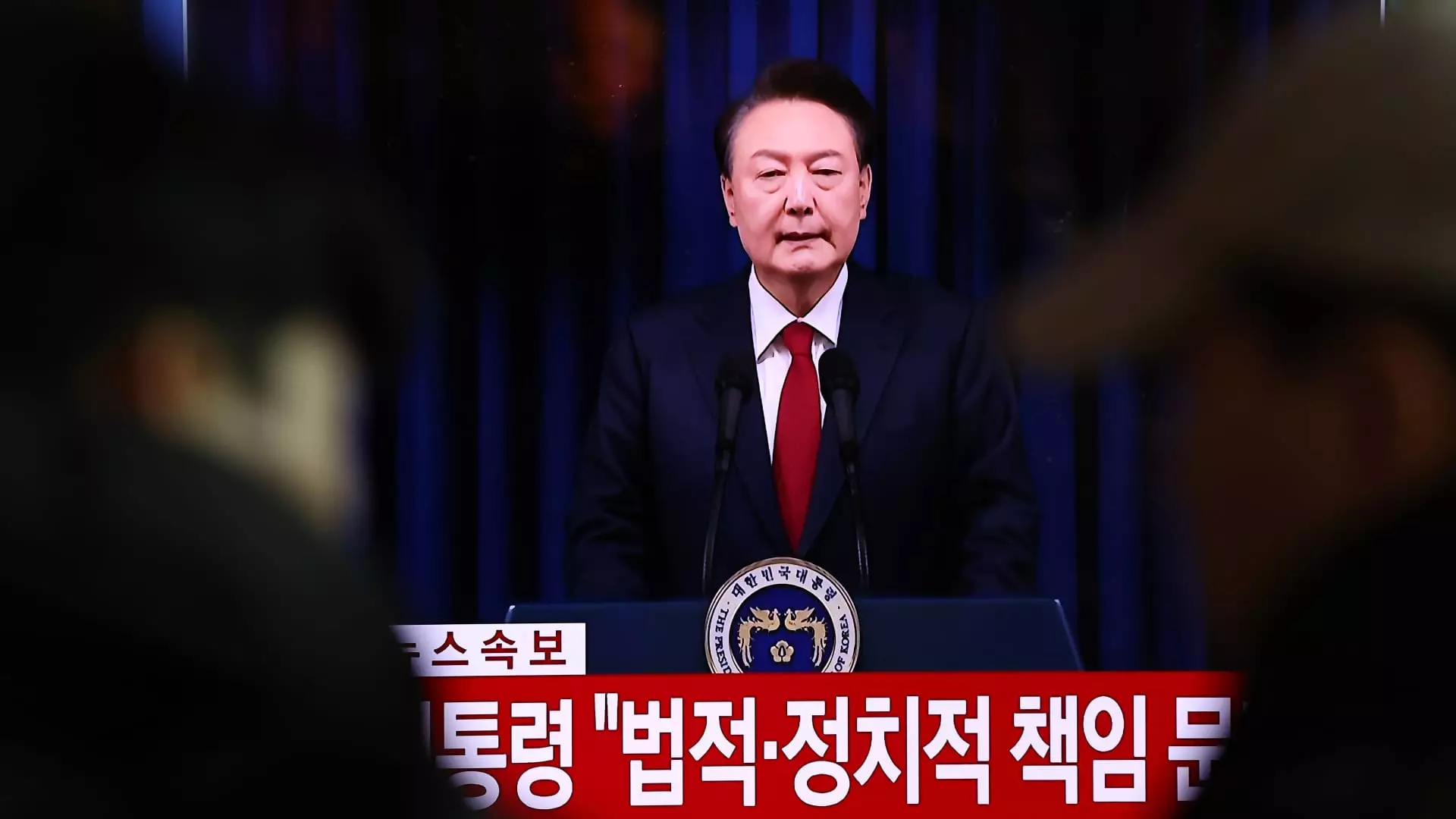South Korea finds itself in a state of political upheaval following the recent impeachment of President Yoon Suk Yeol—a significant development that has stirred debate concerning democratic integrity and governance in the nation. This article aims to delve into the circumstances surrounding Yoon’s impeachment, its subsequent implications on both domestic political dynamics and global economic perceptions, and the lessons to be learned from this unfolding drama.
President Yoon’s tenure has been marred by controversy since day one, culminating recently in an unsuccessful attempt to declare martial law—an action reminiscent of the country’s tumultuous past under military rule. This precarious decision on December 3 stemmed from Yoon’s assertion that it was necessary to safeguard “the constitutional order based on freedom.” However, his declaration, which was promptly retracted within hours, ignited fears among lawmakers and citizens about the potential for more authoritarian governance. This situation escalated to a full-blown impeachment vote, much to the chagrin of Yoon’s supporters, who previously walked out during an earlier voting attempt.
The political landscape shifted dramatically, with the once-loyal People Power Party (PPP) beginning to fracture. As light shone on Yoon’s leadership failures and controversies surrounding his family’s actions—particularly those involving his wife, Kim Keon Hee—the PPP’s loyalty waned. The party’s internal discord, coupled with rising calls from opposition lawmakers, created an environment conducive to Yoon’s succumbing to impeachment.
Yoon Suk Yeol’s situation underscores the fragility of democratic systems, where the threshold for impeachment can oscillate based on the political climate and the perceived legitimacy of a president’s actions. His case is not unique; previous presidents Roh Moo-hyun and Park Geun-hye faced similar crises that unveiled the susceptibility of South Korea’s democracy to crises of governance.
Yoon’s reluctance to resign, even as public approval ratings dwindled—recording a disheartening 17.3% in the immediate fallout from the martial law declaration—reflects a perilous alignment of personal pride and political duty. During his national address, he defiantly pledged to “fight to the end,” further entrenching himself in a quagmire of political unrest. Statements insinuating that opposition criticism amounts to insurrection illustrate a troubling trend of political polarization in South Korea.
While domestic dissent simmers, the focus of international observers has shifted toward the economic landscape of Asia’s fourth-largest economy. Concerns surrounding governance and instability initially left a dent on markets, but analysts suggest a resilient underlying trend as investors begin to separate political chaos from economic potential. As John Woods, chief investment officer at Lombard Odier, perceptively notes, there is a palpable “end game” in sight, emphasizing that the fundamental economic prospects remain strong, bolstered by sectors like technology and artificial intelligence.
The International Monetary Fund’s projection of a 2.5% growth for South Korea this year stands in contrast to the image of a nation on the brink of turmoil. This duality emphasizes a crucial lesson: political crises may yield turbulence, but they do not necessarily signal economic ruin. Investors are looking past the present chaos, seeking opportunities in industries poised for growth amidst adversity.
As South Korea navigates these turbulent waters, the implications of Yoon’s impeachment extend beyond domestic joy or sorrow. The incident highlights the vital necessity for accountable governance in democracies—an ethos that must be embraced, rather than sidelined, to maintain stability and public trust.
Furthermore, the fluctuating perceptions of political authority versus economic viability emphasize the importance of adapting to crises without losing sight of growth. As South Korea stands at this critical intersection, the upcoming presidential election presents a chance not just for renewed leadership, but also for reflection on governance principles. Ultimately, this episode serves as a poignant reminder that the interplay between democracy and capitalism demands vigilance and adaptability, lest the past mistakes linger to haunt national progress.


Leave a Reply